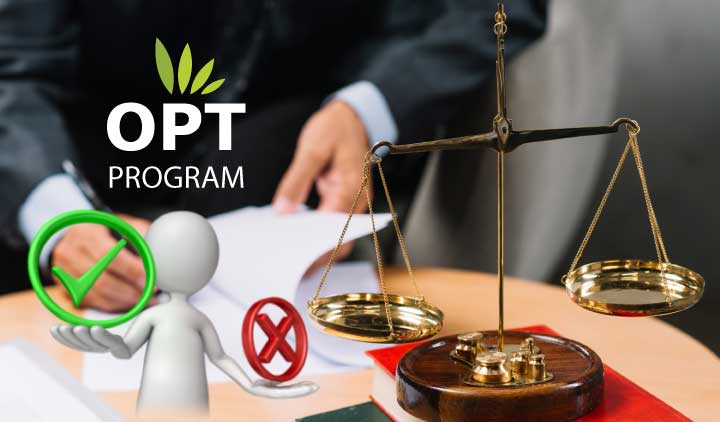The Optional Practical Training program, popularly known as OPT, allows international students to work in the United States after their graduation while they are on their F1 student visas for up to a year. Students can get temporary OPT employment in their major area of study for up to 12 months. STEM students can get an extension of up to 24 months.
The program was challenged through a lawsuit more than a decade now. The litigation challenges the authority of the Department of Homeland Security to issue OPTs.
Join our OPT Job Placement Program
ALSO READ: New threat looms over OPT for F-1 visa students as lawsuit challenges extension of work permit (August 30, 2016)
As the litigation entered its 11th year on May 29 this year, there is a new development in the case. Philadelphia-based immigration attorney William Stock updated on his Twitter on Tuesday evening that the case is back in District Court. In the past, the DC Circuit had held that while Wash Tech Union, an IT Labor Union for Protecting American jobs, did have the standing to challenge the OPT regulation, its challenge to the statutory authorization for the basic OPT regulation may be time barred unless an exception applied.
On Tuesday, the court held that the case would now proceed with the underlying question, whether the OPT program that has been in existence since the 1970s as authorized by the Immigration and Nationality Act.
According to Tock, now there will be additional parties to the lawsuit. The judge has allowed the US Chamber of Commerce, one of the world’s largest business coalitions, to join as an intervenor. Intervenors would work to protect the interest of employers who use the OPT program, which is used to recruit talent in the US, rather than moving tech work overseas.
In what may come as encouraging news for those in favor of OPT program, the judge agreed that the Justice Department might not protect the interest of US employers in the OPT program, hence allowed US Chamber to be a party to make additional arguments on why the OPT is lawful.
The new update allows more room for arguments on why OPT may be lawfully continued and is beneficial for the US economy. The program has been under scrutiny, as the OPT was created through regulation and not through a directive from Congress. The initial litigation had raised two points: whether DHS has the authority to allow aliens to remain in the US on student visas once they have completed their education and secondly whether the DHS possess the authority to allow these aliens to work in the US.
Of late, given the current administration’s tough immigration stance, F1 students have been facing processing delays. International students applying for work authorization through OPT program have been reporting processing delays making them unable to take up some job offers on time.
Students can apply for an OPT 90 days before they finish their academic program. However, there have been reported delays in the processing time in which the students have been receiving their work authorization for OPTs.
Source:- http://bit.ly/30qKnVQ
Disclaimer:- https://bit.ly/2S00nLJ
SUBSCRIBE TO OUR LATEST UPDATES
[newsletter_signup_form id=1]

